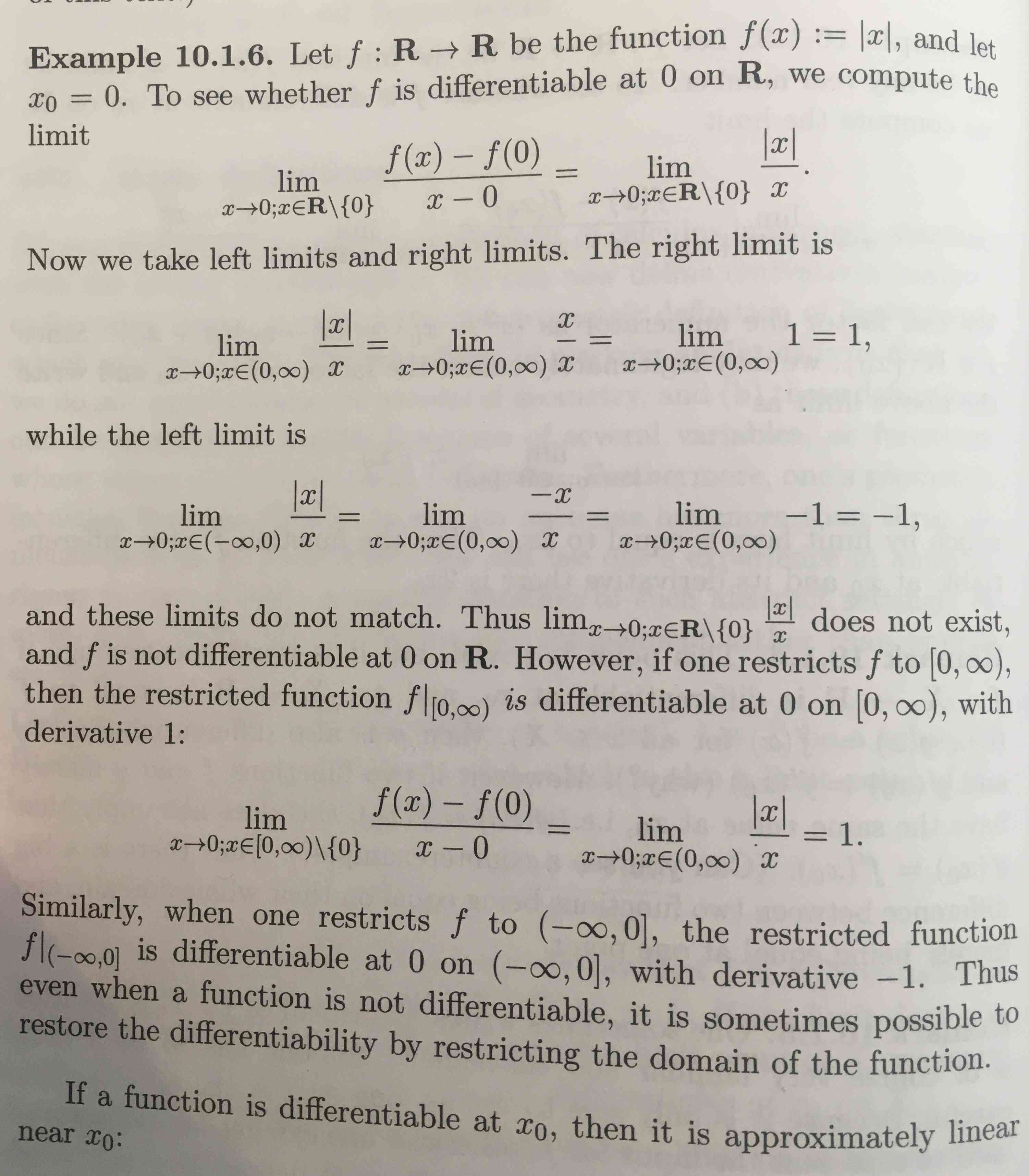Differentiability at a point, definition
Differentiability at a point
Let \( X \) be a subset of \( \mathbb{R} \), and let \( x_0 \in X \) be an element of \( X \) that is also a limit point of \( X \). Let \( f : X \to \mathbb{R} \) be a function. Then, if the following limit:
converges to some \( L \) then we say that \( f \) is differentiable at \( x_0 \) on \( X \) with derivative \( L \). We write: \( f'(x_0) := L \).
If \( x_0 \) is not an element of \( X \) or is not a limit point of \( X \), or the limit does not converge, we leave \( f'(x_0) \) undefined and we say that \( f \) is not differentiable at \( x_0 \) on \( X \).
We need \( x_0 \) to be a limit point (not isolated) in order for it to be adherent to \( X \setminus \{x_0\} \) and in turn for the above limit to be defined. Thus, functions do not have a derivative defined at isolated points.
Reasons against the notation \( \frac{df}{dx} \)
Consider two functions \( f : X \to \mathbb{R} \), defined by \( f(x) := x^2 \) and \( g : X \to \mathbb{R} \), defined by \( g(y) := y^2 \). We have \( f = g \). If we write \( \frac{df}{dx} \) instead of \( f' \), then it is troublesome to consider \( \frac{dg}{dx} \), is it 0? Introducing the notion of differentiation along vector fields can resolve this ambiguity, but this is out of scope here.
Example
Let \( f : \mathbb{R} \to \mathbb{R} \) be the function \( f(x) := x^2 \), and let \( x_0 \) be any real number. To see whether \( f \) is differentiable at \( x_0 \) on \( \mathbb{R} \), we compute the limit:
&= \lim_{x \to x_0; x \in X \setminus \{x_0\} } \frac{(x + x_0)(x - x_0)}{x - x_0} \\
&= \lim_{x \to x_0; x \in X \setminus \{x_0\} } (x + x_0) \\
&= 2 x_0 \\
\end{aligned} \]
Thus \( f \) is differentiable at \( x_0 \) on \( \mathbb{R} \) and its derivative is \( 2 x_0 \).
Another example:

